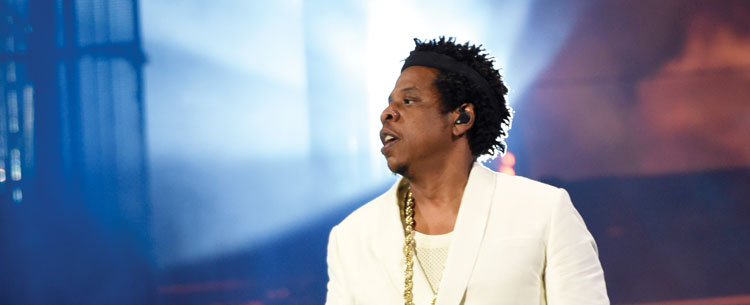Jay-Z’s ADR problems: Mogul’s case spotlights lack of diverse arbitrators

Jay-Z’s case brought attention to the lack of African-American neutrals on the rosters of arbitration organizations. Photo by Kevin Mazur/Getty Images for Parkwood Entertainment
The lack of diversity in arbitration and mediation has drawn increasing attention in legal circles, but it took someone with a huge audience and a lot of money at stake to propel the issue into the headlines.
In a dispute stemming from the $200 million sale of his clothing line, rapper and entrepreneur Jay-Z (whose real name is Shawn Carter) in November challenged an arbitration clause as discriminatory, stating it would force him to select an arbitrator from a list nearly devoid of his ethnic group. Only three of 200 arbitrators on the large and complex case roster provided by the American Arbitration Association identified themselves as African-American, and one of them had a conflict, he argued.
Jay-Z recently reached a compromise with the AAA, which offered him additional African-American arbitrators to choose from and expressed willingness to implement other means of improving diverse representation in future arbitrations. The wider controversy, however, is far from over.
“The Jay-Z case brought this [issue] to the fore, and we were very pleased to see that he took those steps,” says Linda Warren Seely, director of the ABA Section of Dispute Resolution. With more pre-litigation arbitration requirements in contracts, particularly those involving consumer and labor law, she says, the need for “diverse neutrals” in alternate dispute resolution is burgeoning.
ADR providers are offering possible solutions. JAMS, for example, drafted a diversity inclusion rider that may be incorporated into a dispute resolution clause. Through it, the parties agree to appoint a “fair representation” of diverse arbitrators—taking into account ethnicity, gender and sexual orientation—and to request providers to include a significant number of diverse neutrals on their rosters. The JAMS language is among the steps recommended in ABA Resolution 105, passed last year, which guides attorneys and clients in raising awareness and remedying the imbalance.
The participation of lawyers and clients is key, says arbitrator and mediator Linda Gerstel, of counsel at Anderson Kill and a founding member of the ADR Inclusion Network. She notes that the Jay-Z case was the first to focus on the responsibility of lawyers and litigants to actively promote increased diversity in ADR.
“We’re all stakeholders in this community,” says Jaya Sharma, an arbitrator in Madison, Wisconsin, who co-chairs the Section of Dispute Resolution’s diversity committee. “We have to work together and do something meaningful. All these [ADR] organizations are trying their darnedest to recruit women and minorities, and many of them have training programs. That’s great, but then mentoring has to go on. We can’t in all fairness place the onus all on arbitral associations. Everyone has to do their part.”
Sharma poses the question: “Is it a problem of supply or demand? In my opinion, it’s both. Half the battle is to get your name on a roster because that is how you are selected to arbitrate a case. That’s a good first step, but then you need to give [women and minorities] appointments.”
It’s hard to predict whether parties who agree to ADR can seek redress in the courts and what the consequences may be. Iconix Brand Group, the company opposing Jay-Z, claimed that if courts were to review arbitrator pools based upon demographic profiles, it would open “a veritable floodgate of litigation.”
Jay-Z counsel and Quinn Emanuel Urquhart & Sullivan partner Alex Spiro dismisses that argument. “You could say that about anyone or any case that dares to challenge the status quo,” he says. “But it won’t open a floodgate of litigation. It will be a floodgate of progress.”
Spiro maintains that the equal protection clause of the New York state constitution guarantees an ADR participant’s access to the judicial system, while Iconix argued in the case that parties who agree to arbitrate know they may be giving up some protections and rights in exchange for having their dispute decided quickly and privately.
“Given that arbitration clauses have become ubiquitous for large corporations and regular people buying Starbucks gift cards, it is crucial that arbitrations operate fairly,” Spiro says. “Part of what that means is that they protect all people equally under the law. And what that means—at least to me—is that there ought to be some choice for people in the process to at least have the option of selecting among a diverse slate of arbitrators.”
While acknowledging there should be diversity in arbitration, Justice Saliann Scarpulla stated at a hearing on the Jay-Z matter in November: “This is a private agreement between two individuals. You could have said in your contract, ‘I want the Dalai Lama to decide my case,’ and that’s your private right.” She added, “If people are dissatisfied with the diversity of the AAA, don’t put the AAA panel in your agreement. Go somewhere else. Do something that makes a difference.”



